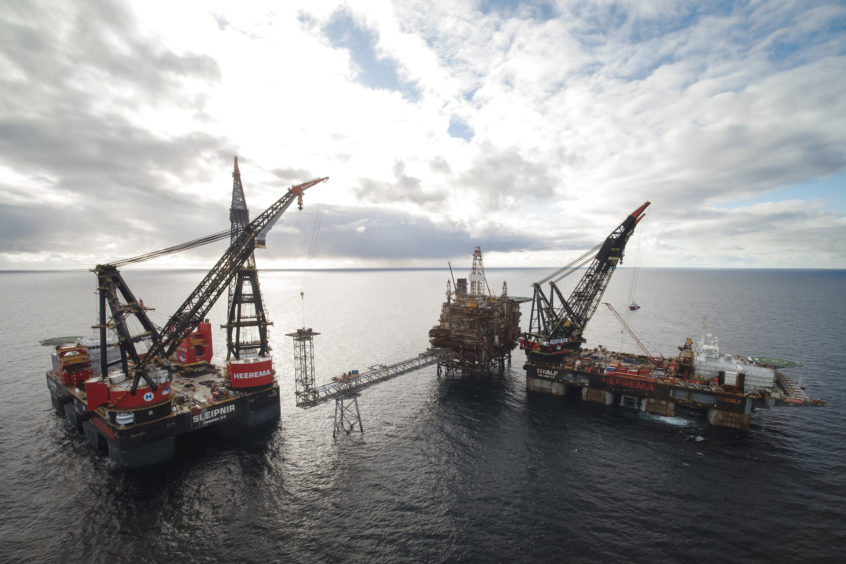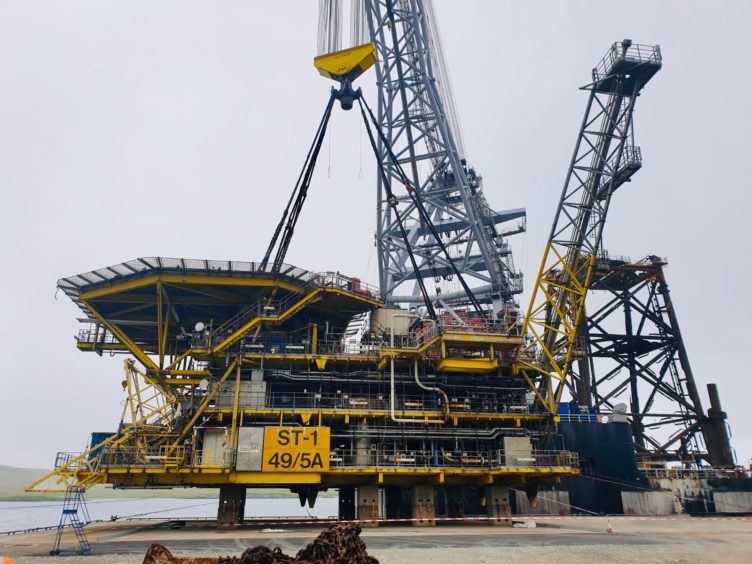
Just as thing seemed to be looking up for the sector, decommissioning could be pushed to the back of the queue once again.
Professor Alex Kemp, a petroleum economist at Aberdeen University, has made a rather gloomy prediction about the impact of the energy profits levy (EPL) on decommissioning activity.
He says operators may well choose to put off removing and breaking up North Sea oil and gas assets until the windfall tax has run its course.
New projects in vogue
Unveiled earlier this year to a cacophony of groans from industry, the EPL trims more tax, an extra 25%, off the profits’ of oil companies.
In return, North Sea firms will be rewarded for investing in new projects as the government works to bolster energy security.
For every £1 spent, oil and gas companies will receive 91 pence back, for a total relief rate of 91.25%.
But with new projects the focus of attention, it means a blow for decommissioning, a big victim of the most recent industry downturn.
Some comfort was given when the government recently confirmed rebates for retiring assets wouldn’t be taxed, but Professor Kemp says “there will still be industry concerned” about the levy.
He said: “Decommissioning costs incurred in the period 2022-2025 will not be relieved against EPL although it is a profit tax. This may well mean that decommissioning activity in the UKCS is at least to some extent postponed until after 2025.
An increase in bank guarantees
“The requirements to pay EPL in the periods 2022-2025 reduces industry cash flows, and when there is capital rationing, investment in new field developments will be given priority over decommissioning work because of the large investment allowance for new field developments.
“Also, note that, when there is a requirement on an operator to provide a bank guarantee for the decommissioning liability, the effect of the EPL, by reducing industry net cash flows, means that the size of the fee payable to the bank will increase.”

Worryingly for the decommissioning sector, the windfall tax is, to a certain extent, open-ended.
A sunset clause is in place for the end of 2025, but the only other way it will be repealed is if oil prices reach a historically more normal level.
More pressing concerns than EPL for decom
Recent research from Boston Consulting Group (BCG) also warned that decommissioning is likely to feel the sharp end of the EPL, while high oil prices could make it even worse.
Sam Long, interim chief executive at trade body Decom North Sea, said: “The energy industry has been trying to understand the balance point within the ‘energy trilemma’ of affordability, security of supply and sustainability. The impact of the EPL upon this, and its impact on decommissioning, have been discussed at a number of industry fora since it was announced, with a key question being as to whether it would delay any decommissioning activity.
“In reality, this is one of many points currently circulating, with a more pressing concern being inflationary pressures on both supply chain pricing and operator budgets. The fact that the Government has since clarified the position and removed uncertainty regarding tax offset is welcomed; we have many challenges to be tackled in the decommissioning arena and the supply chain will welcome steps that help smooth the waters at present so that we can focus efforts on jobs, skills retention and the delicate balance of cost optimisation and supply chain profitability.”
Recommended for you



 © Supplied by DNS/ Abermedia
© Supplied by DNS/ Abermedia